Listen to The Stoke
Why are we drawn to the idea of adventure?
What is an adventure? What does the word mean?
Certain words in our culture suffer from overuse and adventure is one of them. Watered down, these overused words become castaways in the lexicon of everyday language; once carrying significance, only to drift into the strange land of ubiquity. Adventure for the modern person relates to our sensibilities now almost primarily through simulacra. When we do experience adventure in the physical, it comes via a controlled environment where safety and knownness dominate the experience. The rise of the novel contributed to our current sanitized relationship with adventure.
Since the nineteenth century, the public engaged with the idea of adventure by way of the novel. Stories like Mary Shelley’s Frankenstein (1818), Walter Scott’s Ivanhoe (1820), and James Fenimore Cooper’s The Last of the Mohicans (1826) captured the imagination of generations of readers who longed to travel and see new parts of the world and engage with foreigners.
The novel, however, lives downstream, so to speak, of the real frontier; of expanding cultures around the world. Fiction springs from experiences in the real world. We hear stories, seek to emulate them, and live them vicariously through an entertaining medium.
But adventure novels do touch something within the human psyche, something profound and on an existential level. We sense a calling to go forth and see for ourselves what lies in the beyond.
If we peer further into history, nearly 700 years ago, we find the world opening up to global travel.
Ferdinand Magellan (1480-1521), a Portugues explore, is credited with organizing the first circumnavigation of the world. Magellan founded and named the Pacific Ocean—if it’s possible to name such a thing.
The story goes, when he and his caravan of ships entered the waters of the Pacific, the ocean was calm. Pacific means “peaceful.” It took over two months for them to cross the peaceful ocean—what we now call the Pacific. Many died from starvation and scurvy.
What prompted Magellan’s curiosity to plan such a voyage?
He set out to discover a way to travel westward to South-East Asia where he hoped to find exotic spices and gems. He only knew of the great ocean that lay beyond the Atlantic. He heard the call to, “Come, see, find.”
And, in order to reach his goal, he had to set out into the literal unknown, with only an off-chance of discovering a passage between the Americas. And he had to convince 260 men to join his expedition which required five ships.
But Ferdinand did not successfully complete the journey. He died searching for the gems and spices. He planned the expedition, but it was a man from his crew who would end up completing the circumnavigation around the world.
Adventure is something that happens along the journey. It’s what happens to you on the expedition. It cannot be planned. It must simply be experienced at the moment.
Born To Roam
Why do human beings risk death for the sake of discovering something new?
Experts in landscape, geography, and navigation remind us that a symbiotic relationship exists between human beings and the world in which we live. There is more to the space around us than simply location.
From birth, human beings exist within and explore space. Even in the womb, we come to know and understand the space in which we exist at a base level. As soon as we enter the world, our minds and emotions churn with an innate curiosity to understand our surroundings. We make mental maps of everything. The world imprints on us, spacially, psychologically, and spiritually (self, or creaturely, awareness).
John Stilgoe, a landscape historian, bemoans the twenty-first century’s trajectory as it careens into what economist Klauss Schwabb calls the Fourth Industrial Revolution—a time of digital, physical and biological fusion; a time that will redefine what it means to be human and “what it means to be completely embedded in this world.”
Stilgoe says living in a world in which everything is mapped out for you, where everything is known and safe, is a disaster for our lived experience. This kind of pre-planned and safe world is exactly the world found in a smartphone.
As new generations grow up on portable digital devices from a young age, they will lose their sense of curiosity, wonder, and desire to find their own way in the world.
Getting lost says Stilgoe, is an essential component of the human experience. It forces us to find our way, to explore the landscape, to truly see the world and how to live in it.
Even the way we adventure in our hyper-modern world reflects our inability to actually see the world aright. With the Global Positioning System (GPS) and Google Maps and a plethora of other smartphone apps, we no longer drive to a place reliant upon our experience of it. We listen to the computer. “Alexa, how do I get to Pisgah National Forest?”
We follow the silly blue dot, when we should be “seeing” the landscape and what it’s doing, how it’s shaped, and our place in relation to it.
Since the early Babylonian and Sumerian empires, humans relied upon the landscape, beneath the feet and in the sky, to navigate. Wayfinding was part of what it meant to live and travel. They knew the stars, how they signalled the seasons, and where they moved in relation to their own land.
Today, however, if you want to know how to get somewhere, you enter the data in your device and follow the directions or ping Siri. Having lost the ability to navigate on our own, having lost our relationship with the physical world, the true notion of adventure can only be grasped in a film or television series or a novel.
“But Tim,” you say, “aren’t you being hyperbolic. Adventure does not need to be month-long expeditions into unknown territories. Besides, haven’t we explored everything already? Do we really need adventure in our lives at the level you’re suggesting?”
“Ah yes,” I reply. “I agree there’s little left to discover over land. I do, however, wish to point out that adventure is not a consumer commodity. It is our human heritage. We’ve been given space on a terrestrial planet and launched, so to speak, by its Creator to learn and know who we are in relation to it, thus giving us a deeper understanding as we relate to him. Adventure, you see, is that, in part, for which we were made.”
One of J.R.R. Tolkien’s most beautiful lines comes from The Fellowship of the Ring: “… all who wander are not lost.” The line from Tolkien’s poem reminds us of two things. First, wandering is our natural state. And second, navigation isn’t always about certainty.
The ancients used the stars to navigate, and sometimes they used planets. Plantes, according to Harvard scientist John Edward Huth, are not as reliable as stars for navigation. The word planet means “wanderer.” The brightest planets (Mars, Jupiter and Venus), says Huth, can act as “temporary beacons for travellers, but they move against the fixed background of stars.”
Huth reminds us, however, that planets can still be used for navigation if one understands their motion. The motion of the planetary wanderers reminds us that wandering is a natural state of being. We are planets, in motion upon the fixed background of the earth. But if we cease moving, we lose our birthright as wanderers.
What Happens Along the Way
In this short reflection, we’ve still not defined adventure. Adventure comes from Latin and French and means to arrive, or what’s about to happen. We dub men like Magellan “adventurers.” But that moniker comes after the journey has ended in some fashion. Magellan was an explorer. He employed his natural curiosity to discover that for what his heart yearned. In his case, spices and gems.
The late literature professor Joseph Campbell, famous for his book The Hero With a Thousand Faces said heroes are called into an adventure. The call might be something tangible, like gems or spices, but there is something else under the surface that calls. As a professor of literature and world religions, he said this call came from the World Navel, the source of existence. As a Christian, I call this source the Creator God.
The landscape or something behind the landscape, the stars, the cosmos calls to us. It is the voice of God whispering to us through creation. To answer His call is to set out on the expedition of human existence. And what happens along the way? Well, that’s the adventure.
Stay stoked my friends.


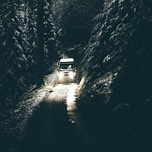




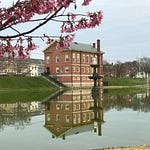
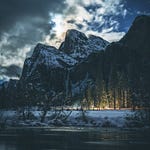
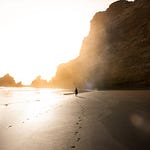

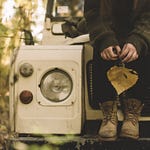
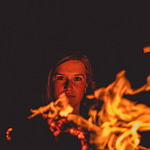
Share this post